Nutrient-Dense Foods provide the body with essential vitamins, minerals, antioxidants, and other essential nutrients for optimal health and well-being. Eating nutrient-dense foods is also a great way to maintain a healthy weight, as they are often low in calories and high in fiber. The following article will explore the 10 most nutrient-dense foods and their numerous health benefits.
Nutrient-dense foods have a high concentration of vitamins, minerals, and other essential nutrients. These foods are packed with micronutrients that are important for proper functioning of the human body. They are also low in calories, making them the perfect addition to any weight loss or maintenance plan. In addition to providing essential nutrients, these foods are often rich in antioxidants, phytonutrients, and other compounds that have powerful health benefits.
What Are the Nutrient-Dense Foods
Eating nutrient-dense foods is key to maintaining optimal health and longevity. These foods are packed with phytochemicals, essential fatty acids, and other compounds that can help reduce the risk of chronic diseases such as heart disease, diabetes, and cancer. Additionally, these foods are rich in fiber, which is essential for proper digestion and absorption of nutrients. Eating various nutrient-dense foods can also help boost energy levels and promote mental clarity and focus.
The following article will provide an overview of the top 10 most nutrient-dense foods and their numerous health benefits. We will also discuss the various vitamins, minerals, and other nutrients these foods contain and provide tips for incorporating them into your daily diet. By adding more nutrient-dense foods to your diet, you will be able to improve your overall health and well-being.

1. Dark Leafy Greens
Dark leafy greens are a powerhouse of nutrients packed with vitamins, minerals, and antioxidants. These nutrient-rich greens are an excellent source of calcium, iron, magnesium, potassium, riboflavin, and vitamins A, C, and K. Not only are dark leafy greens full of nutrients, but they’re also low in calories and provide a healthy dose of fiber.
Dark leafy greens are some of the most nutrient-dense foods on the planet. Eating these greens can help protect against disease, boost the immune system, and improve overall health. They provide essential nutrients for healthy bones and tissues and can help reduce inflammation. Dark leafy greens can also reduce the risk of certain cancers and promote healthy digestion.
The health benefits of eating dark leafy greens are numerous. Studies have shown that they can help lower cholesterol, protect against heart disease, and reduce the risk of diabetes. Eating dark leafy greens can also help keep blood pressure in check and may help protect against stroke.
Eating dark leafy greens is easy and can be incorporated into any diet. They can be eaten raw in salads or added to smoothies, soups, and sauces. You can also sauté them with garlic and herbs for a quick and flavorful side dish. Dark leafy greens can be steamed, boiled, or stir-fried and served as a side dish.
When buying dark leafy greens, look for fresh and crisp greens. Avoid greens that are wilted, yellow, or brown. Store your dark leafy greens in the refrigerator in a sealed plastic bag for up to five days. It’s best to use the greens as soon as possible.
Dark leafy greens are some of the most nutrient-dense foods on the planet. Eating these nutrient-rich greens can help protect against disease, boost the immune system, and improve overall health. They’re an excellent source of vitamins, minerals, and antioxidants, and they provide essential nutrients for healthy bones and tissues. Eating dark leafy greens is easy and can be incorporated into any diet.
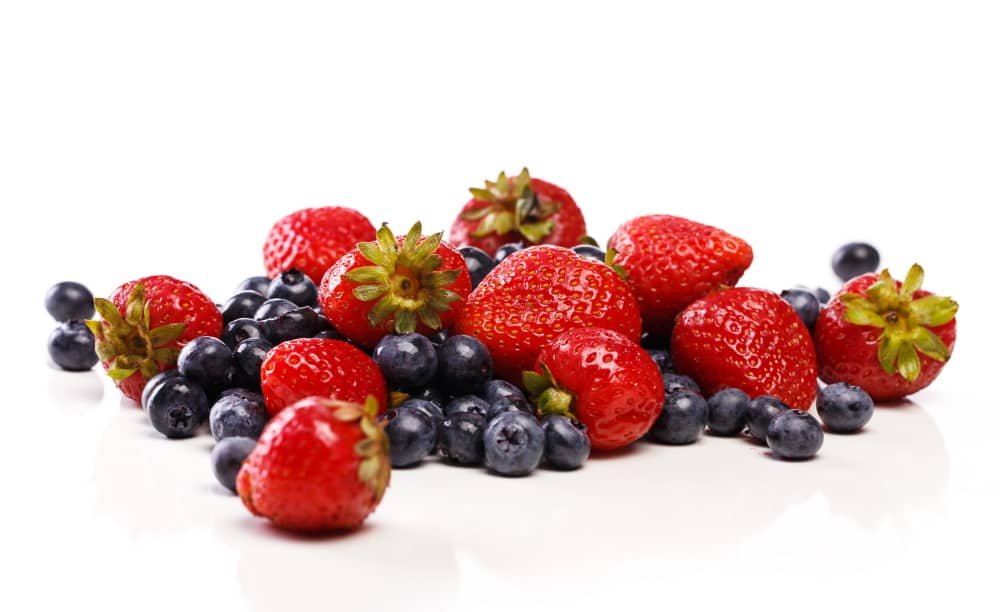
2. Berries
Berries are one of the most nutrient-dense foods you can consume. Packed with antioxidants, vitamins, and minerals, they are a great source of nutritional value. Berries also provide a wide variety of health benefits that make them an ideal part of any diet.
Nutrients in Berries:
Berries are an excellent source of antioxidants, which can help protect against the damage caused by free radicals. They are also packed with vitamins and minerals, including C, A, and folate. Berries also contain dietary fiber, which helps to improve digestion and reduce cholesterol.
Health Benefits of Eating Berries:
Berries are high in antioxidants, which can help protect against oxidative stress and lower the risk of chronic diseases like heart disease, cancer, and diabetes. Additionally, they are a good fiber source, which helps reduce cholesterol and improve digestion. Berries also contain polyphenols, which can help reduce inflammation in the body, and reduce the risk of age-related diseases.
How to Eat Berries:
Berries can be eaten in a variety of ways. You can eat them fresh, frozen, or dried, or add them to smoothies, oatmeal, yogurt, or cereals. You can also use them in baking or making jam or jelly.
Berries can also be used to make a variety of sauces, dressings, and marinades for salads, meats, and vegetables. They can also be used to make a delicious and healthy smoothie or even blended into a frozen treat like a sorbet or an ice cream.
In addition to eating berries as a snack or as part of a meal, you can also use them to make healthy desserts and treats. For example, you can bake a berry crumble or cobbler, make a berry tart, or top a bowl of ice cream with a healthy berry sauce.
Berries are an excellent nutritional value source packed with antioxidants, vitamins, and minerals. They can be eaten fresh, frozen, or dried and used in various dishes to add flavor and nutrition to any meal. They also provide various health benefits, including reducing inflammation, the risk of chronic diseases, and improving digestion. Eating berries regularly is a great way to stay healthy and get the most out of your diet.

3. Fish
Regarding nutrient-dense foods, fish is definitely at the top of the list. Fish contains essential nutrients, including omega-3 fatty acids, protein, vitamins, and minerals. Eating fish regularly has various health benefits and can be easily incorporated into different meal plans.
Nutrients in Fish:
Fish is a great source of essential nutrients. It is a rich source of omega-3 fatty acids essential for maintaining brain health, heart health, and overall well-being. Fish is also a source of high-quality protein for building and maintaining muscle mass. Fish also contains vitamins and minerals, including vitamin D, iron, selenium, and magnesium.
Health Benefits of Eating Fish:
Eating fish regularly has many health benefits. Studies have shown that eating fish can lower your risk of developing heart disease, stroke, and certain types of cancer. Fish is also known to improve cognitive function, as the omega-3 fatty acids help to support brain health. Fish is also a great source of lean protein, which can help with weight management.
How to Eat Fish:
There are a variety of ways to incorporate fish into your diet. Fish can be cooked in a variety of ways, including baking, grilling, poaching, and steaming. Fish is also a great option for those who like meal prep, as it can be cooked in bulk and stored later. Additionally, fish can be incorporated into salads, sandwiches, and other dishes.
Fish is a great option if you want to add more nutrient-dense foods to your diet. Not only is it rich in essential nutrients, but it also offers a variety of health benefits. Incorporating fish into your diet can help you to maintain a healthy and balanced lifestyle.

4. Nuts and Seeds
Nuts and seeds are nutritional powerhouses that can provide a wide range of vitamins, minerals, and antioxidants. They are a great source of dietary fiber, plant-based protein, and healthy fats. Eating nuts and seeds can help you meet your nutrient needs and boost your overall health.
The array of nutrients available in nuts and seeds is remarkable. They contain calcium, magnesium, iron, zinc, and potassium minerals. They are also high in important vitamins like vitamins B and E. Nuts and seeds are also one of the best dietary sources of healthy fats like omega-3s and omega-6s.
There are numerous health benefits associated with eating nuts and seeds. These include a reduced risk of heart disease, diabetes, and obesity. They can also help to lower blood pressure and improve cholesterol levels. Eating nuts and seeds has also improved brain health and cognitive function.
When it comes to how to eat nuts and seeds, the best way is to eat them raw. This will ensure that you get the most nutrition and flavor from them. You can also roast them, but avoid added salt, sugar, and oil. Nuts and seeds can also be added to various dishes, including salads, stir-fries, and oatmeal.
Nuts and seeds are a great snack choice and can easily be added to any meal. They are available in various forms: whole, shelled, salted, unsalted, and roasted. When choosing which to buy, look for unsalted products without added sugar.
In addition to eating nuts and seeds, you can also incorporate them into your diet by using nut and seed butter, oils, and milks. These products are often fortified with vitamins and minerals and can be a great way to add more nutrition to your meals.
Nut and seed butters are a great way to get healthy fats, vitamins, and minerals daily. They can be used in many dishes, such as sandwiches, oatmeal, smoothies, and even desserts. Nut and seed oils like olive oil can also be used for cooking and baking. Lastly, nut and seed milks are a great dairy-free alternative for lactose intolerant people.
Nuts and seeds are a fantastic addition to any diet. They are packed with important nutrients and offer many health benefits. Be sure to eat nuts and seeds to get all the nutrients your body needs.
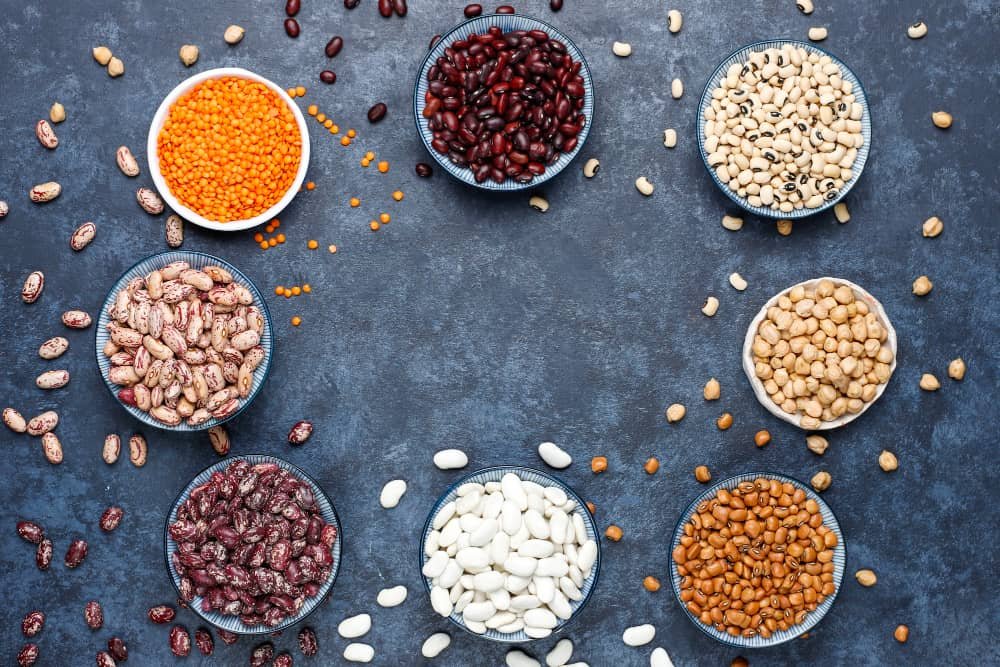
5. Legumes
Legumes are a great source of protein, fiber, vitamins, and minerals, making them a nutrient-dense food. They are a popular choice among vegans and vegetarians as they are an excellent plant-based source of protein. Legumes are a great option for those looking to increase their protein intake without the added calories from animal sources.
Legumes are a great source of fiber, which helps promote healthy digestion, regularity, and a healthy gut. Fiber can also help lower cholesterol and blood sugar levels and can help you feel fuller for longer, making them a great option for weight management.
Legumes can also help support cardiovascular health. Some studies have shown that legumes can help reduce cholesterol levels, which can help prevent heart disease and stroke. Legumes are also a great source of plant-based protein, which can help reduce inflammation in the body, another factor that can lead to heart disease.
Legumes are also a great source of various vitamins and minerals, including folate, iron, zinc, magnesium, and calcium. These vitamins and minerals can help support healthy bones, teeth, and muscles. Legumes are also a great source of antioxidants, which can help reduce inflammation and oxidative stress, leading to chronic disease.
Legumes are incredibly versatile; they can be enjoyed in various ways. They can be boiled, sautéed, roasted, stir-fried, or even used in soups and salads. They can also be added to pasta dishes, curries, or casseroles for extra flavor and texture. Legumes can also be ground into flour and used as a substitute for wheat flour in baking.
Legumes are an incredibly healthy and nutrient-dense food that can be enjoyed in a variety of ways. They are a great source of protein, fiber, vitamins, and minerals and can help promote a healthy digestive system, lower cholesterol, and reduce inflammation. They are also versatile and can be used in various dishes, from salads and soups to baking and stir-fries. Including legumes in your diet can help you get all the essential nutrients you need to stay healthy.
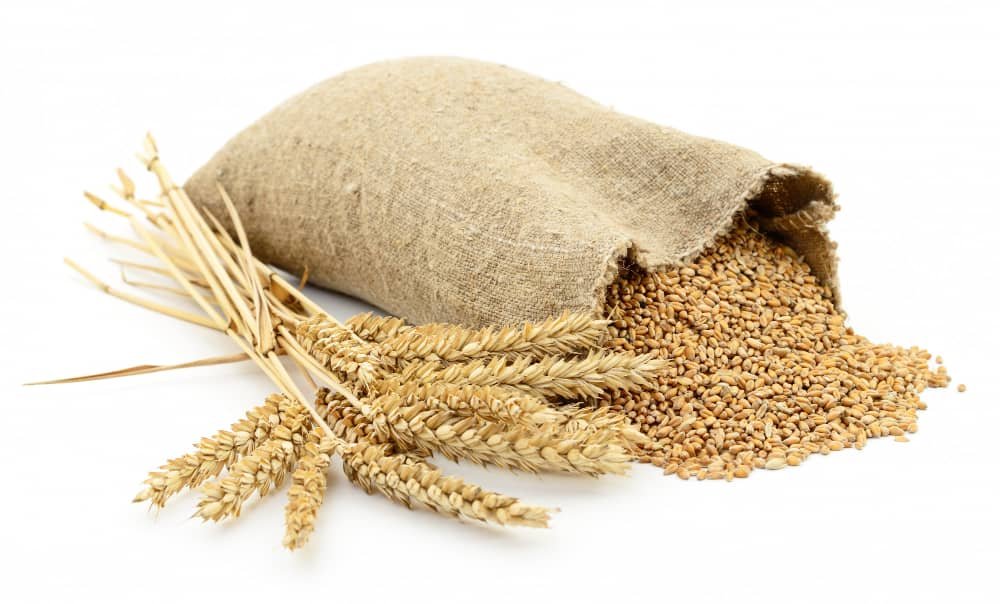
6. Whole Grains
Whole grains, such as wheat, rye, barley, oats, and corn, are a great source of dietary fiber, vitamins, minerals, and phytochemicals. They provide a great balance of macronutrients, proteins, fats, and carbohydrates. Whole grains are also an excellent source of B vitamins, including thiamin, riboflavin, niacin, and folate. Whole grains also contain essential minerals like iron, zinc, magnesium, and selenium.
Eating whole grains has been linked to various health benefits, including reducing the risk of type 2 diabetes, cardiovascular disease, and certain types of cancer. Whole grains also reduce inflammation, lower cholesterol, and help with weight management. Eating whole grains can also help with digestion and provide essential nutrients for gut health.
When it comes to eating whole grains, the most important thing is to choose whole grains over refined grains. Refined grains, such as white flour, white rice, and white bread, are stripped of their bran and germ, which contain most of the grain’s fiber, vitamins, minerals, and phytonutrients. On the other hand, whole grains retain their bran and germ, providing more nutrition.
When shopping for whole grains, look for products labeled “100% whole grain”, “whole grain”, “whole wheat”, or “wheat flour”. If the product does not have the word “whole” in its name, it is not a whole grain. Additionally, look for the Whole Grains Council logo on the package. This logo indicates that the product contains at least 8 grams of whole grains per serving.
When cooking with whole grains, it is essential to remember that they take longer to cook than refined grains. For example, brown rice will take about 45 minutes to cook, while white rice will take about 20 minutes. To save time, try cooking a larger batch of whole grains and store the leftovers in the fridge. You can then use the cooked grains in salads, stir-fries, or as a side dish.
Eating whole grains is an easy way to get more nutrition into your diet. Try substituting whole grains for refined grains in your favorite recipes to make them nutrient-dense and delicious.
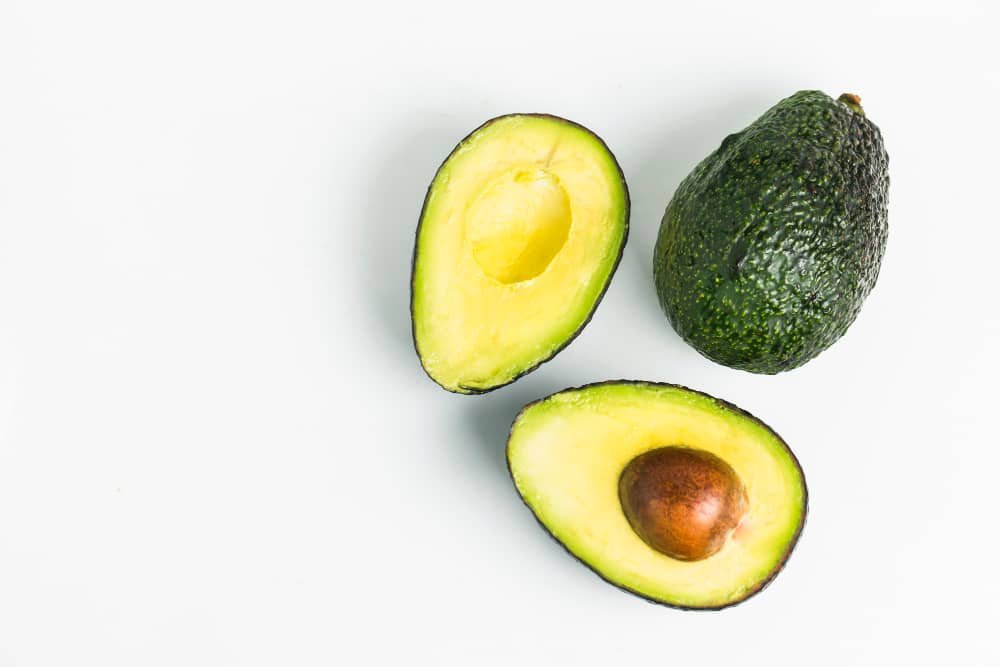
7. Avocados
Avocados are a nutrient-dense food that has become a popular part of the modern diet. They are high in essential vitamins, minerals, heart-healthy omega-3 fatty acids, and dietary fiber.
Nutrients in Avocados: Avocados are a good source of vitamins A, C, E, K, and B6, as well as folate, potassium, magnesium, and iron. They also contain many monounsaturated fatty acids linked to a reduced risk of stroke and heart disease.
Health Benefits of Eating Avocados: Eating avocados can help to reduce inflammation, improve digestion, and lower cholesterol levels. They are also high in fiber, which can help regulate blood sugar levels and keep you full for longer. Eating avocados can also help boost your energy levels, providing essential vitamins and minerals for proper energy metabolism.
How to Eat Avocados: Avocados can be enjoyed in various dishes. They can be sliced and added to salads or sandwiches, blended into smoothies or used as the base for a healthy guacamole dip. Avocados can also be added to baked goods, such as muffins, cakes, and brownies. They can also be used as a replacement for butter or other oils in baking recipes.
Eating avocados can be a great way to get more nutrition into your diet. Since they are high in fiber and healthy fats, avocados can be a great addition to any meal. They can also help fill meals and provide essential vitamins and minerals. Avocados are a great choice if you’re looking for nutrient-dense food to add to your diet.

8. Fermented Foods
Fermented foods are superfoods that are packed with nutrients and beneficial bacteria that help improve gut health and overall digestion. Fermented foods have been around for centuries and are popular in many cultures across the globe. These foods have been found to have a wide variety of health benefits, including improved digestion, better mood, and enhanced immune system function.
Fermented foods are made by lacto-fermenting, which is a process that uses lactic acid bacteria to convert the sugars and starches in food into lactic acid. This process can be done using milk, vegetables, grains, fruits, and even meats. The result is a food rich in probiotics, which are beneficial bacteria associated with improved digestion and overall health.
Regarding nutrients, fermented foods are packed with them, including vitamins, minerals, antioxidants, and enzymes that can help boost your body’s natural defense system. Fermented foods also contain high levels of essential fatty acids, which are necessary for healthy cell growth and can help to reduce inflammation in the body.
The most familiar fermented foods include yogurt, sauerkraut, kimchi, miso, kefir, and tempeh. These foods can be added to your diet in various ways, such as adding them to salads, soups, and smoothies or as a topping for sandwiches.
Yogurt is one of the most popular fermented foods, and it’s also one of the healthiest. Yogurt contains beneficial probiotics that can help to improve digestion and reduce inflammation in the body. It’s also a great source of calcium, potassium, magnesium, and vitamins B2, B12, and D.
Sauerkraut is another great fermented food that is high in probiotics and antioxidants. It’s also rich in vitamins A, C, and K and minerals such as iron and calcium. Sauerkraut is also a good source of fiber, which can help to improve digestion and keep you feeling full for longer.
Kimchi is a Korean-style fermented food that is full of probiotics and antioxidants. It also contains vitamins A, B, and C and minerals such as iron, magnesium, and calcium. Kimchi is also a great source of dietary fiber, which can help improve digestion and keep you full longer.
Miso is a Japanese-style fermented food that is full of beneficial probiotics. It can help to improve digestion, reduce inflammation, and boost the immune system. Miso is also a great source of protein, vitamins, minerals, and fiber.
Kefir is a fermented dairy product full of beneficial probiotics and can help improve digestion and reduce inflammation. Kefir is also rich in calcium, magnesium, potassium, and vitamins B2 and B12.
Tempeh is a fermented soy product that is full of beneficial probiotics. It is a great source of protein, vitamins, minerals, fiber, and essential fatty acids.
Fermented foods can be a great addition to any healthy diet. They are full of probiotics and other nutrients that can help to improve your digestion, boost your immune system, and reduce inflammation in the body. Eating fermented foods regularly can help you maintain a healthy weight and improve your overall health.
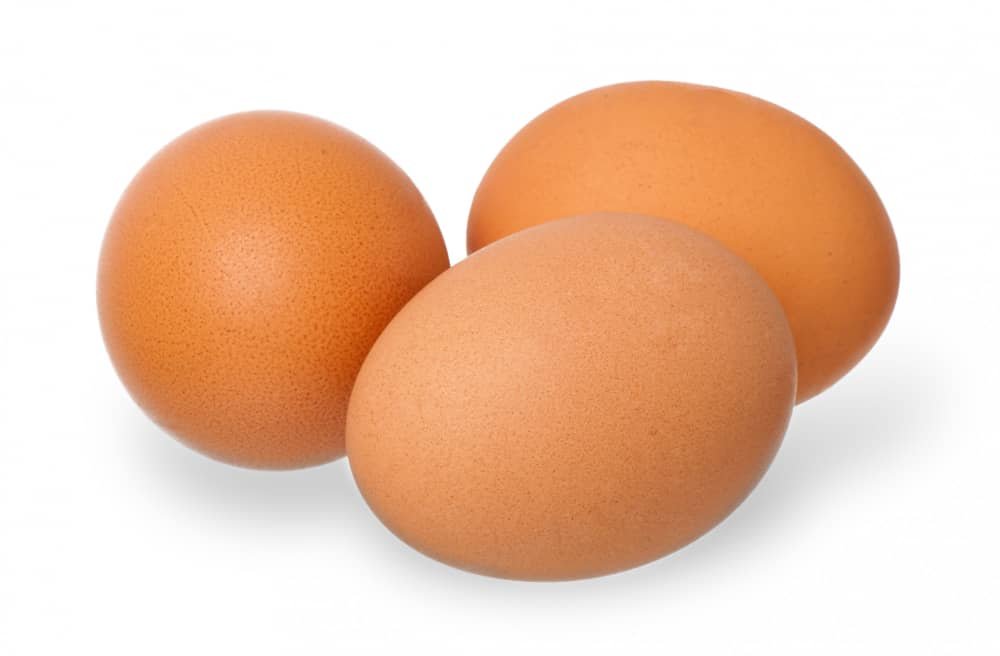
9. Eggs
Eggs are an excellent source of nutrients and provide many health benefits. They contain protein, vitamins, minerals, healthy fats, and antioxidants. Eggs are also a great source of choline, a nutrient that plays an important role in brain health and development.
When it comes to nutrient density, eggs are at the top of the list. One large egg contains about 78 calories, 6 grams of protein, 5 grams of fat, and trace amounts of carbohydrates. It also provides numerous vitamins and minerals, including vitamins A, B2, B12, D, and E, and folate, iron, zinc, and selenium.
In terms of health benefits, consuming eggs regularly is associated with a decreased risk of heart disease, stroke, type two diabetes, and some types of cancer, such as colon and breast cancer. Eggs are also known to improve eye health, as they contain lutein and zeaxanthin, two plant-based compounds that are important for healthy vision. Furthermore, research has shown that eating eggs can help to control blood sugar levels and reduce inflammation.
Eggs can be eaten in various ways, making them highly versatile and easy to incorporate into any meal. For a quick and healthy breakfast, you can scramble, poach, or hard-boiled eggs and serve them with a side of vegetables or whole-grain toast. You can add boiled eggs to salads or use them in omelets, quiches, and frittatas for lunch or dinner. For a nutritious snack, you can also bake eggs in a muffin tin with vegetables and herbs.
There are many delicious ways to enjoy eggs, so don’t be afraid to get creative and experiment with different flavors and textures. For a nutrient-dense meal, pair eggs with other foods from this list, such as dark leafy greens, nuts and seeds, and avocados.
Eggs are a nutritious and affordable food option and a great way to increase the nutrient density of your diet. When purchasing eggs, opt for organic, pasture-raised eggs, as they are far superior in nutritional quality and taste.
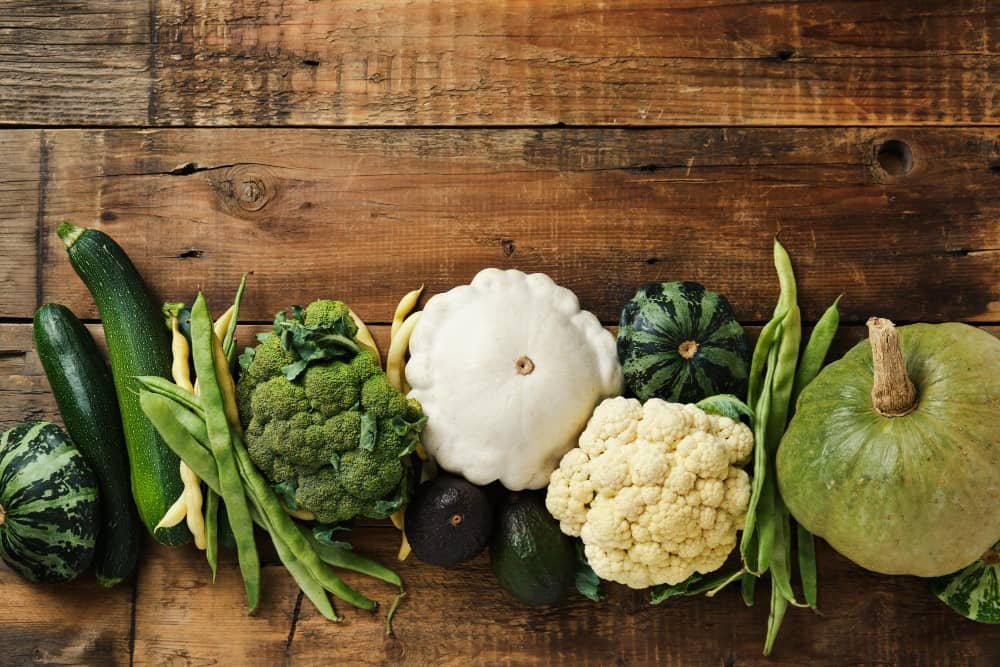
10. Cruciferous Vegetables
Cruciferous vegetables are a class of vegetables packed with nutrients and provide various health benefits.
Nutrients in Cruciferous Vegetables: Cruciferous vegetables are an excellent source of essential vitamins, minerals, and antioxidants. Nutrients found in cruciferous vegetables include vitamin C, folate, vitamin K, vitamin A, potassium, and magnesium. Additionally, they are also a great source of fiber.
Health Benefits of Eating Cruciferous Vegetables: Eating cruciferous vegetables regularly can help reduce the risk of many chronic diseases. Studies have shown that cruciferous vegetables can help reduce the risk of cancer, heart disease, and diabetes. They are also a great source of antioxidants which can help protect against oxidative stress and help the body fight off disease-causing free radicals. Additionally, cruciferous vegetables are also associated with a reduced risk of cognitive decline and can help improve overall cognitive performance.
How to Eat Cruciferous Vegetables: There are many different ways to enjoy cruciferous vegetables. They can be eaten raw, such as in a salad or coleslaw, cooked as part of a stir-fry, roasted, steamed, or boiled. Cruciferous vegetables can also be added to soups and stews for flavor and nutrition.
Cruciferous vegetables are a great addition to any diet and can be easily incorporated into meals. They are a nutrient-dense food that can provide various health benefits, from reducing the risk of chronic diseases to improving cognitive function.
In addition to being an excellent source of vitamins and minerals, cruciferous vegetables are also incredibly low in calories, fat, and sugar. This makes them a great choice for people looking to lose weight or eat a balanced diet.
Lastly, cruciferous vegetables are very versatile and can be used in various dishes. Whether you enjoy them raw, cooked, or added to a soup or stew, cruciferous vegetables are an excellent choice for getting essential nutrients.

Conclusion
The importance of getting enough nutrition through your diet cannot be underestimated. Eating nutrient-dense foods can help you get the vitamins and minerals your body needs to stay healthy and vibrant. The top 10 nutrient-dense foods are dark leafy greens, berries, fish, nuts and seeds, legumes, whole grains, avocados, fermented foods, eggs, and cruciferous vegetables.
Dark leafy greens such as spinach, kale, and Swiss chard are packed with vitamins, minerals, fiber, and antioxidants that can help reduce inflammation and protect against chronic diseases. Berries are low in calories but high in vitamins, minerals, and antioxidants, making them a great addition to any diet.
Fish is a great source of protein, omega-3 fatty acids, and vitamins and is associated with a reduced risk of heart disease. Nuts and seeds are excellent sources of healthy fats, protein, vitamins, and minerals. Legumes such as beans, lentils, and peas are packed with protein, fiber, and vitamins and can help keep you feeling full longer. Whole grains like oats and quinoa are a great source of fiber, B vitamins, and minerals.
Avocados are rich in heart-healthy fats, fiber, and vitamins. Fermented foods like yogurt, kefir, and kimchi are full of beneficial probiotics that can help improve digestion and reduce inflammation. Eggs are a great source of protein and contain many vitamins and minerals. Cruciferous vegetables such as broccoli, cauliflower, and Brussels sprouts contain vitamins, minerals, and antioxidants.
Adding these nutrient-dense foods to your diet ensures you are getting the vitamins and minerals your body needs to function optimally. Not only that, but eating foods high in nutrition can reduce your risk of chronic diseases in the long term.
Consult with a dietitian or nutritionist to create a balanced meal plan that meets your individual needs. Many resources are available online to educate you about healthy dietary choices.
Eating nutrient-dense foods is one of the best ways to ensure you get enough vitamins and minerals to keep your body functioning properly. Incorporating the top 10 nutrient-dense foods into your diet can improve your health and reduce your risk of chronic diseases in the long term.
Eating healthy doesn’t have to be boring or flavorless – plenty of delicious recipes incorporate these nutrient-dense foods so you can enjoy them every day.








